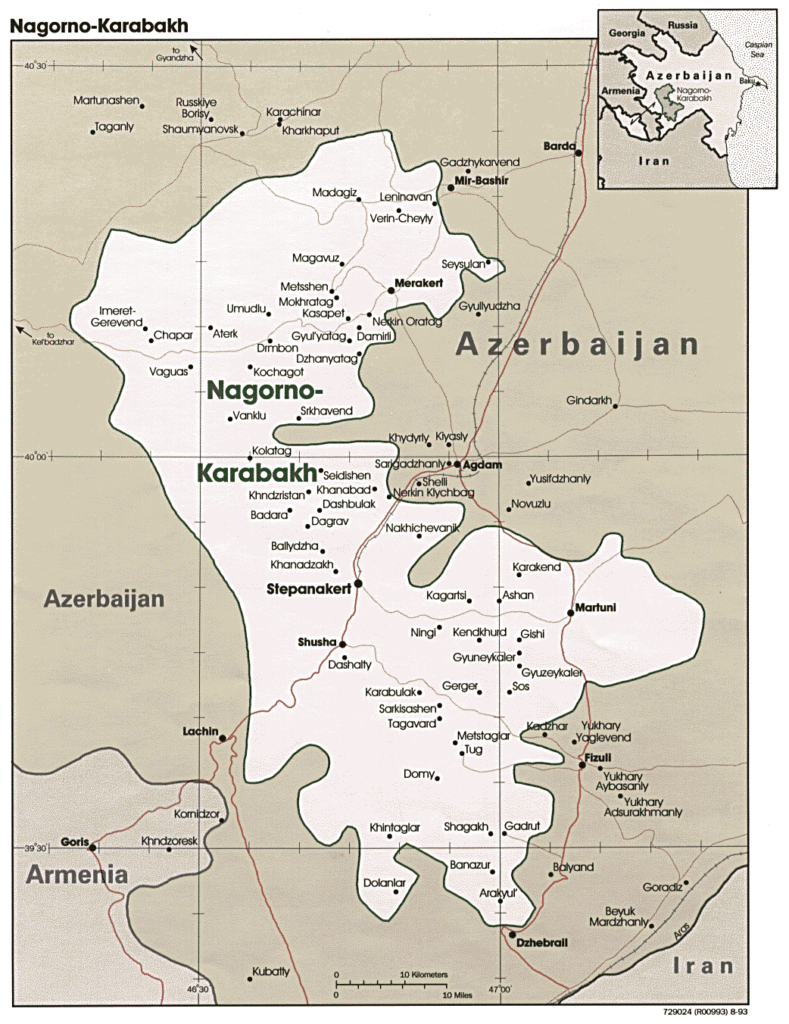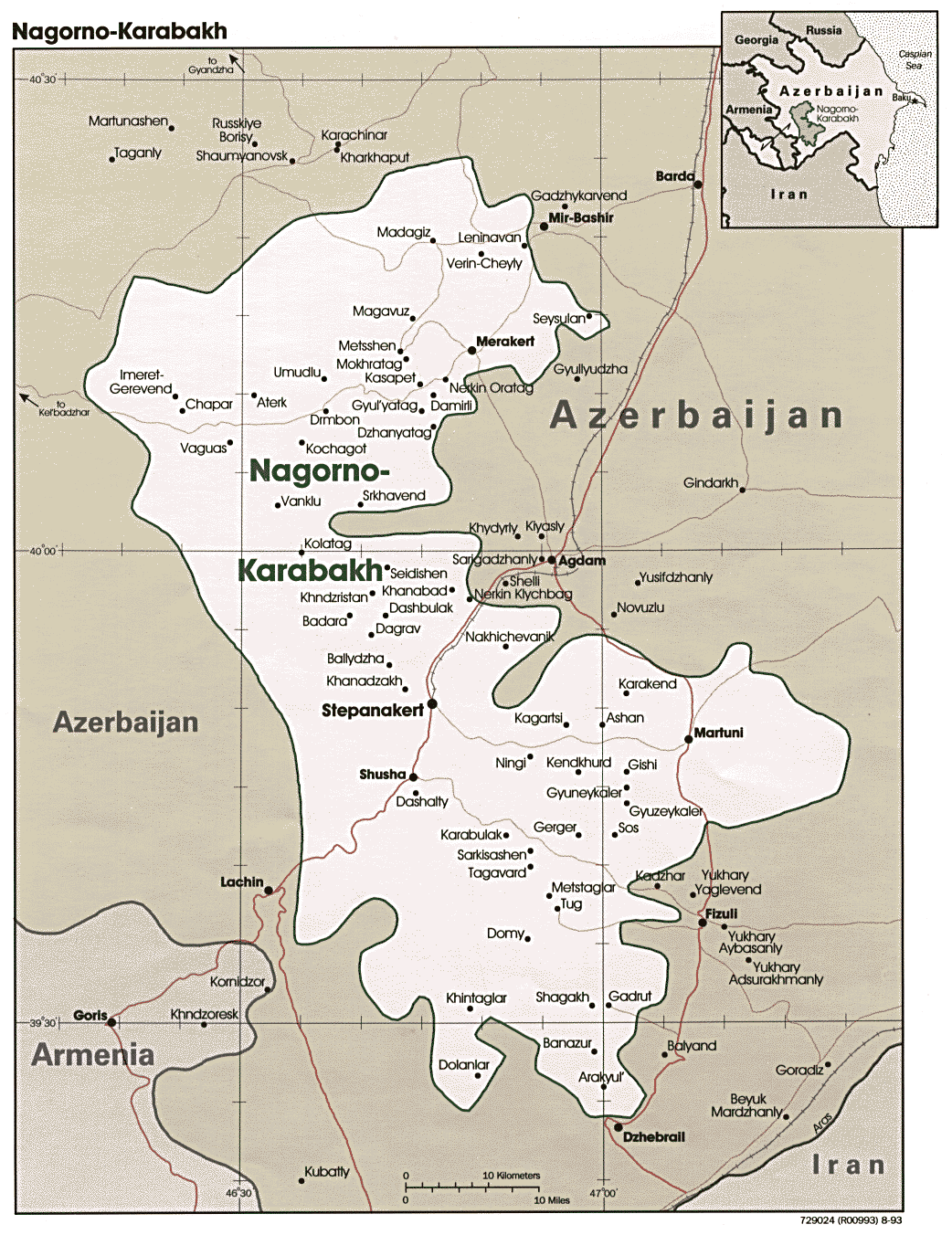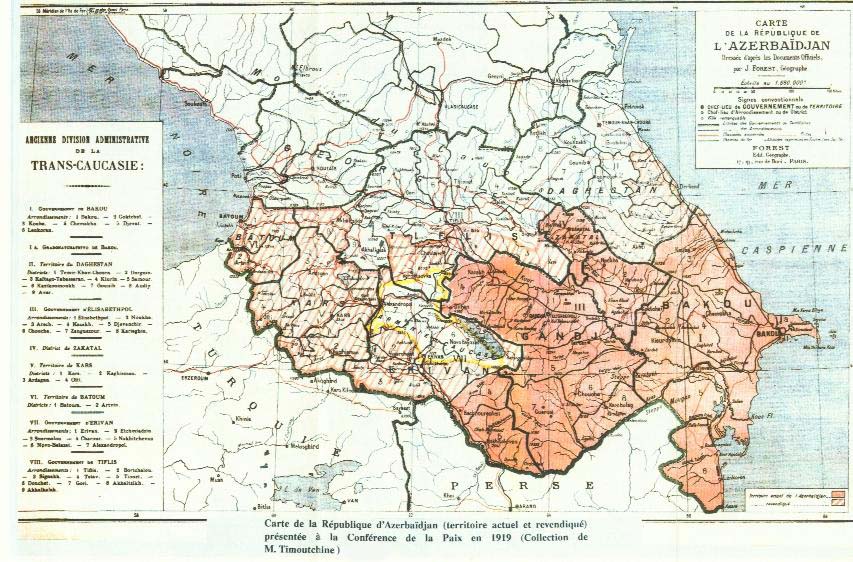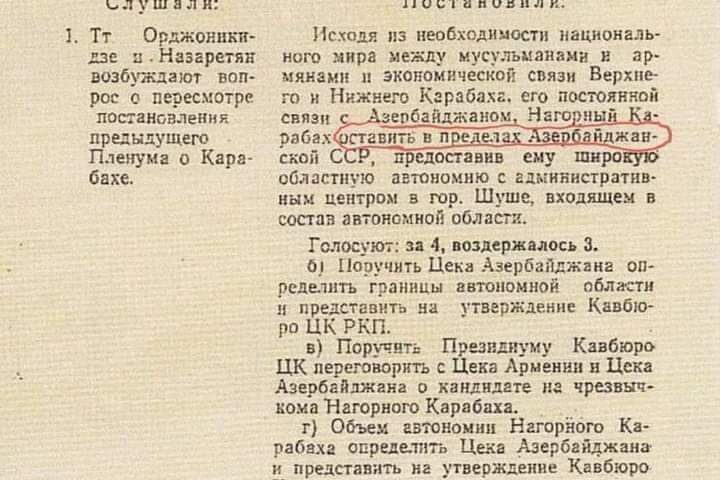Recently, “Regnum” Russian news agency website published a series of essays of my landsman and fellow student S.N. Tarasov relative to the recent history of the mountainous portion of Karabakh. In these essays, the author cast doubt on its inclusion with the Azerbaijan Democratic Republic (1918-1920). At the same time S.N. Tarasov attempted to recount the unique course of events in connection with the well-known declaration of N. Narimanov of December 1, 1920, and repeated the distorted idea about “the transfer by Stalin” in 1921 of the mountainous part of Karabakh to Azerbaijan. To back up his assertions, the author cited archival documents. However, this selection, instead of introducing clarity in the question under consideration in fact led to its distortion, and thus instead of clarifying these events calls forth only regret.

On April 28, 1920 Soviet forces occupied Baku. A month later, Karabakh was also occupied by Russian forces, and independent Azerbaijan ceased to exist. A little later, the same fate came to Armenia and Georgia. In this way, after a two-year break, the Trans-Caucasus again fell under the power of Russia, now already Soviet Russia. After Sovietization, Azerbaijan began to catastrophically loose its territories. In the first years of Sovietization, seeing how the central government of the Bolsheviks was transferring to Armenia lands that had been Azerbaijani from time immemorial and not being willing to put up with this injustice, N. Narimanov wrote to Lenin that the lands which under the Musavat government had been considered indisputably Azerbaijani, now under Soviet power had become subject of dispute, that the people saw this and was expressing its dissatisfaction. [1]
The activation of Armenians in Karabakh and other places of the republic from the first days of sovietization, the unpunished realization of the policy of force against the Muslim population are to be explained in the first instance by the weakness of Azerbaijan and its army and the demobilization of its forces. On June 29, 1920 S. Kirov reported to G. Chicherin that the Dashnaks were persecuting not only Muslims, but also Russians. He wrote that, “Of the 30,000 Russians in Kars oblast remain only 15,000; the remainder either had dispersed to Turkey or to Russia or had died.” [2]
On June 19, N. Narimanov, M. Mdivani, A. Mikoyan, and A. Nuridzhanyan sent to G. Chicherin a telegram, in which they reported about the advance of the Dashnak army and its successes in Gazakh and Gadabay. A copy of this telegram was sent to G. Ordzhonikidze in Vladikavkaz, and it included the following notable lines: “The Armenians in fact are in a state of war with Azerbaijan. As far as the supposedly disputed Zangazur and Karabakh territories, which already are within the borders of Soviet Azerbaijan, we categorically declare that these places beyond any question must stay within the borders of Azerbaijan.” [3]
G.Chichern, upset by the fact that authoritative Bolsheviks from Azerbaijan, Georgia and Armenia who had worked for many years in the Caucasus were showing resistance to the policy of the Center, sent on June 22, 1920 a letter to the Politburo of the Central Committee of the RCP(b) with a complaint about “the indiscipline of Baku comrades and the disturbing contradiction between their actions and the political line established by the Central Committee.” In his opinion, the transfer to Azerbaijan of the disputed territories which had now been seized by Russia would make impossible an agreement with Armenia. [4]
The reasoning of Chicherin on this point is interesting. He explained to Lenin that “up to now Russia has not given these lands to the Armenians so as not to offend the Tatars. When conditions are created for the sovietization of Georgia and Armenia, then all these problems will resolve themselves.” [5] From numerous explanatory notes and telegraphs of Chicherin to Lenin, Ordzhonikidze, and Narimanov, one thing is clear: Chicherin viewed Karabakh as something to be traded, as a decoy, in the course of negotiations with Armenia.
The strengthening of Armenian claims on the mountainous part of Karabakh forced Bolsheviks well known in the Caucasus, such as N. Narimanov, M. Mdivani, A. Mikoyan, and B. Naneyshvili, as well as even members of the military council of the XI Army Zh. Vesnik, M. Levandovsky and I. Mikhailov, to sign a letter to the Central Committee of the RCP(b), which stated that, “we consider it our duty to send to the Central Committee our single position on the question of Zangazur and Karabakh, the resolution of which during negotiations with Armenia is proceeding in ways that conflict with the interests of the revolution in the Caucasus. Karabakh under the Musavat government was entirely part of Azerbaijan. The unbroken nature of the cultural and economic ties of Karabakh and Zangazur with Baku, which provides support for thousands of workers from these provinces, and their complete separation from Yerevan was demonstrated at the peasant congress of Armenian Karabakh in 1919, which—despite the unbearable conditions for the Armenians under the Musavat regime and the provocative work of agents of Armenia—all the same decisively called for complete unity with Azerbaijan under conditions of a guarantee for the peaceful life of Armenians.” At the end of this letter, it was noted that the Muslim masses consider a betrayal the inability of Soviet power to preserve Azerbaijan in its old borders and explain this as a reflection of the pro-Armenian nature or weakness of Soviet power. Thus, those signing the document warned the center against any vacillation on the issue of Karabakh and Zangazur. [6]






